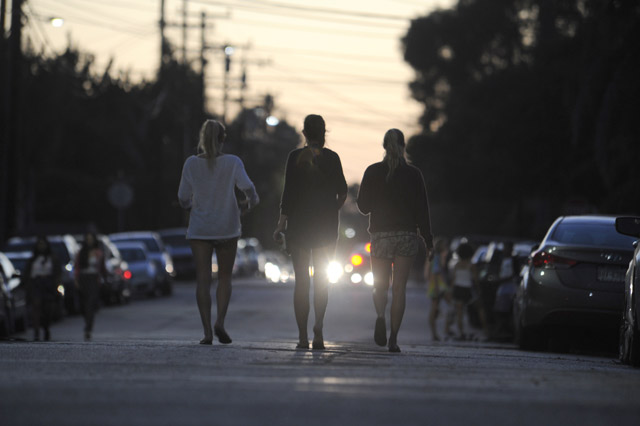Isla Vista Rapist Gets Six-Month Jail Sentence
UCSB Dropout Likely to Be Deported Next

Shuhei Nakata, 22, was sentenced this week to six months in County Jail for raping an intoxicated woman last June in Isla Vista.
A UCSB dropout who played lacrosse and worked at a local tech company, Nakata was born in Japan but spent most of his life in Northern California before moving to the Santa Barbara area for college. Once he completes his remaining 55 days in custody, Nakata will likely be deported, as he is not a U.S. citizen.

That “collateral consequence” was essential for prosecutor Von Nguyen, who struck a plea deal with Nakata’s defense attorney, Catherine Swysen. “These are tough cases,” Nguyen said outside the courtroom Monday. “I took [the victim’s] feelings and what we believed to be best for her into consideration.”
On June 6, Nakata pleaded guilty to felony rape and rape by use of drugs, agreeing to spend 180 days in jail, be on felony probation for five years, and register as a sex offender for life. The county’s Probation Department, however, had recommended that Nakata be sentenced to three years in prison.
In its report, the department stated Nakata was unsuitable for probation because he personally gave Jane Doe — as she is identified in court documents — shots of vodka and failed to cease the assault despite friends’ knocking on the locked bedroom door. “The defendant should be deemed a danger to young college women reaching their legal alcohol consumption age,” it reads.
Nguyen disagreed with the recommendation. She said she had long conversations with the victim’s family and emphasized the plea deal “was not something done against the victim’s will.” Nakata felt his sentence “was a little unfair.” Swysen declined to comment.
One Friday afternoon in June 2015, Jane Doe drank beers with friends, including Nakata, at Pizza My Heart in Isla Vista, before heading back to a friend’s house, where she drank shots of vodka. The group later decided to go to another acquaintance’s house, the probation report states, but her friends realized she could barely stand straight and that she needed to go home. They dropped her off at home. Nakata stayed with her.
According to the probation report, Nakata said he brought her water and a peanut-butter-and-jelly sandwich. He patted her on the back, he said, because she “just didn’t look okay.” In a conversation with Doe days later, he said, “You know you were like hugging me and stuff, and that led to kissing.” He went on, “At the time I thought you might have been a little attracted to me or something, and that’s what led to hooking up and having sex, but I realize that after you called me ‘Conner’ that you were just very, very drunk and mistook me for someone else. In light of that, I probably took advantage of the fact that you were very intoxicated and that is what I’m very sorry for.”
According to witness accounts, Doe’s friends knocked on her bedroom door when they heard sounds of two people having sex, but the door was locked. They said they heard her call Nakata “Conner,” the wrong name, but that he did not stop, which he later admitted when questioned by Sheriff’s deputies. When asked if he thought Doe would have sex with him while sober, Nakata said, “Honestly, probably no.”
Two days after the assault, Doe reported the assault to the Isla Vista Foot Patrol and was later administered a rape kit. One day later, Doe informed deputies the pants she was wearing that night were still zipped and buttoned when she found them.
Nakata later admitted the incident weighed on him because he realized Doe was “completely blacked out” and the intercourse was “absolutely not okay to happen,” the probation report states. He also wrote an apology letter.
The case concludes at a time of outrage surrounding the case of Brock Turner, who received what many critics called a light sentence after brutally raping a woman behind a dumpster at Stanford University. In response to public outrage, two state lawmakers quickly drafted AB 2888, which would require defendants convicted of sex crimes involving intoxicated victims to serve time in prison.
Elsa Granados, director at the Santa Barbara Rape Crisis Center, said she had mixed feelings about the bill. “When a jury sees an increase in sentencing, they tend not to convict,” she said. “They can’t see the hurt and trauma of the person assaulted. They do see how the perpetrator is going to be impacted.” However, she added, “Of course we want to see perpetrators held accountable for their crime.” Assemblymember Das Williams voted for the bill. It has yet to reach the Senate floor.



